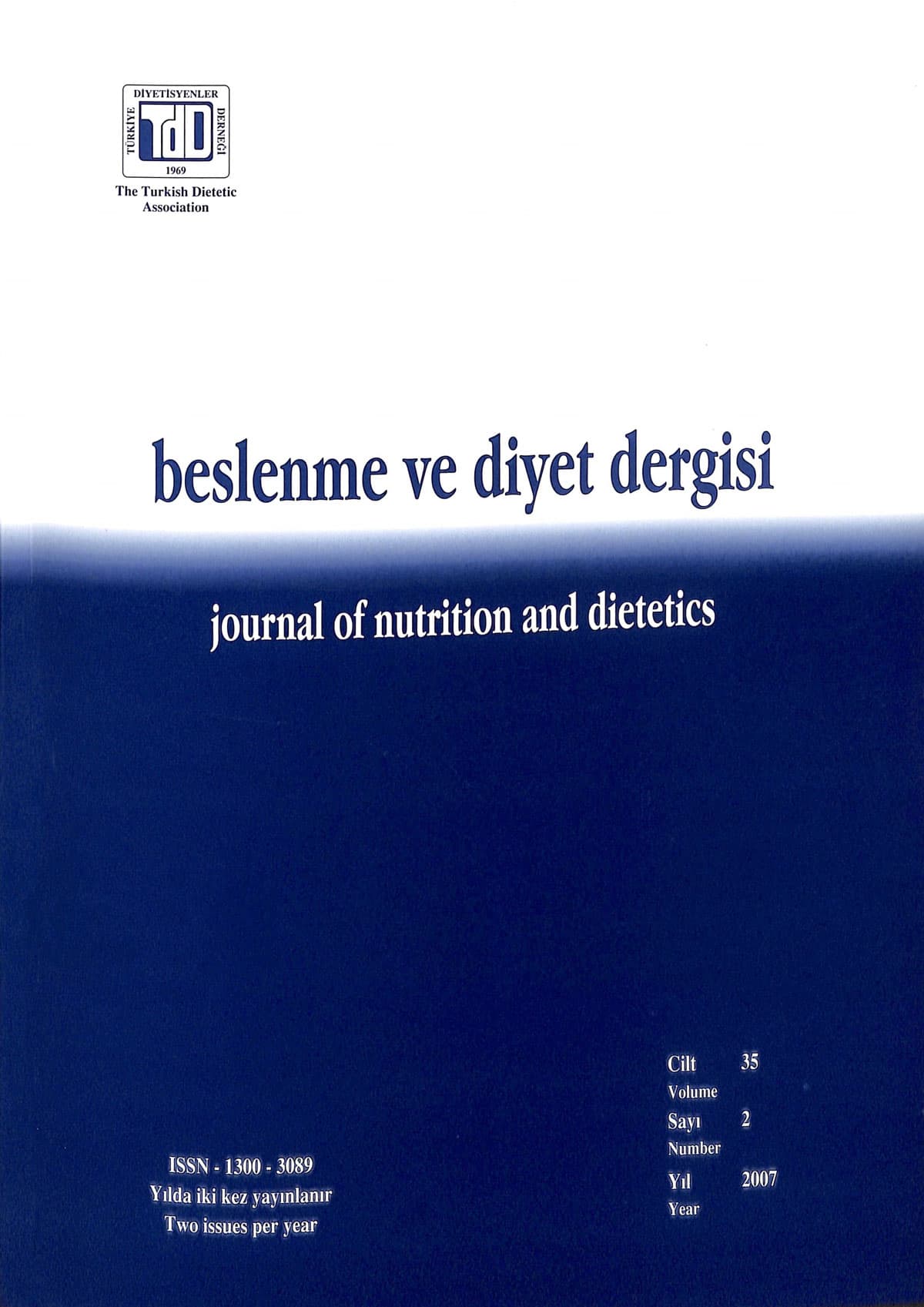The effects of omega-3 supplementation on anthropometric measurements, biochemical parameters and cognitive development in children with phenylketonuria
Keywords:
Phenylketonuria, fısh oilAbstract
Dietary intake o f eicosapentanoic acid (EPA) and docosahexaenoic acid (DHA) are inadequate in phenlyketonuric (PKU) patients who have been on protein and phenylalanine restricted diets. Twenty-four children, aged 6-8 years (13 boys, 11 girls), mentally not retarded and with normal liver function followed by Hacettepe University Ihsan Doğramacı Child ren s Hospital Metabolism Unit and Nutrition and Dietetic Department were supplied with fısh oil capsules or syrup at 10 mg o f DHA/kg o f body weight/day during a 6 month period. Each (500 mg)capsule contained 18 % o f EPA, 12 % DHA. The intakes o f EPA and DHA were signifıcantly lower in prestudy period than in study-period (p>0.001). At the end o f the trial the supplemented phenylketonuric children showed a signifıcant decrease o f total cholesterol, LDL cholesterol and triglyceride levels and a signifıcant increase o f HDL cholesterol levels (p<0.05). However total, oral and perfomance WISC-R point was lower in prestudy period than in study-period, only the difference between total WISC-R points were statistically signifıcant. A placebo-controlled blinded randomized trial is need to be done fo r the impact o f fısh oil supplementation on growth and development in phenylketonuric children.

